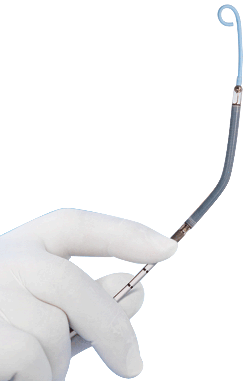
November 9, 2011 – Abiomed, a provider of heart support technologies, announced results of an economic study at the annual 2011 Transcatheter Cardiovascular Therapeutics (TCT) conference. The economic study demonstrated that Impella significantly reduced major adverse events at an incremental cost per quality-adjusted life year considered to be cost-effective for advanced cardiovascular technologies. Quality of life benefits included an increase in ejection fraction of over 20 percent and an improvement in New York Heart Association (NYHA) Class III and Class IV heart failure of over 50 percent.
This study was performed by Prescott Associates and the Harvard Clinical Research Institute (HCRI), utilizing data on patients enrolled in the PROTECT II trial, which is the first randomized trial comparing prophylactic use of hemodynamic support in patients with depressed left ventricular function and complex anatomy. The study demonstrated a gain in quality of life for Impella patients over the current standard of care, the intra-aortic balloon pump (IABP), at an incremental cost-effectiveness ratio (ICER) of $39,400, below the $100,000 threshold commonly used in the United States.
The economic study results were consistent with overall PROTECT II 90 day clinical outcomes previously released. In the 90 days following initial hospitalization, Impella patients experienced:
- 50 percent lower re-hospitalization costs compared to the IABP (p=0.023);
- 58 percent reduction in hospitalizations due to repeat revascularization (p=0.024);
- Two fewer days in the hospital (p=0.001)
“National delivery and payment reforms will accelerate the need for healthcare providers to show that clinical therapies improve quality of life and justify the use of healthcare resources,” said David A. Gregory, MPA, FACHE, executive vice president, Prescott Associates. “These economic findings on the Impella therapy as compared to the IABP are meaningful, demonstrating that Impella reduces adverse events including the need for multiple procedures over time, which is a benefit to hospitals, payers, and certainly to the patient from a quality perspective.”
“We are excited to see the clinical benefits of Impella translating into economic value for payers and providers, particularly in this era of accountable care,” said Michael R. Minogue, Chairman, President, and Chief Executive Officer, Abiomed. “These data demonstrate that [percutaneous coronary intervention] PCI is valuable and identifies a new, cost-effective, minimally invasive alternative for many of these high risk chronic heart failure patients. We believe that hemodynamic support with Impella represents a new paradigm of cost-effective treatment that directly correlates with the patient’s quality of life.”
For additional information: www.abiomed.com


 January 05, 2026
January 05, 2026 









